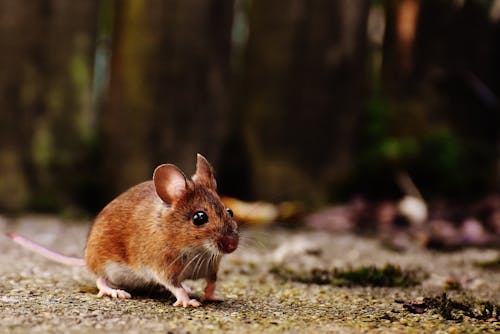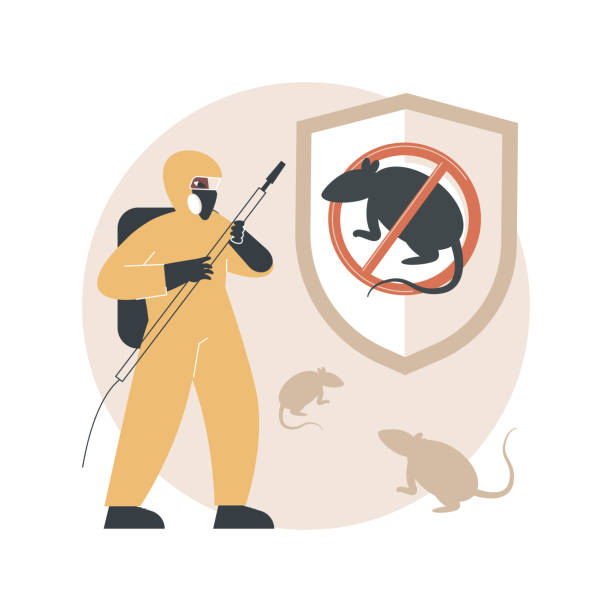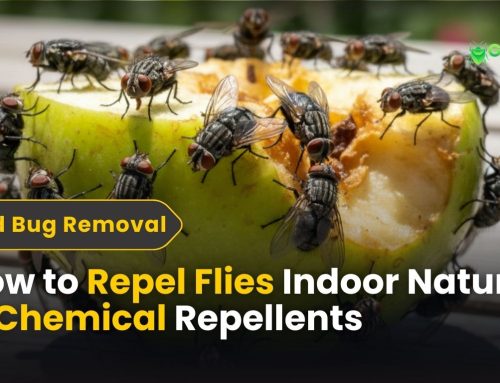Natural Methods to Remove Mice: Effectiveness and Best Solutions Of 2025
Mice infestations can cause serious problems in homes, leading to property damage, food contamination, and potential health risks. These rodents carry diseases, chew through electrical wiring, and multiply rapidly, making it essential to address the issue quickly. While chemical-based solutions like rodenticides and traps are commonly used, many people prefer natural methods to remove mice without exposing their families and pets to toxic substances.
Natural remedies can be an effective and eco-friendly alternative, especially when combined with preventive measures. Mice rely on their keen sense of smell, so strong-scented deterrents like peppermint oil, cloves, and vinegar can help keep them away. Other natural solutions, such as ultrasonic repellent devices, cayenne pepper, and ammonia, can create an unwelcoming environment for mice. Additionally, sealing entry points with steel wool or caulk is crucial in preventing their return.
While these methods can be effective for small infestations and as preventive measures, they may not completely eliminate larger infestations. In severe cases, professional pest control may be necessary. By combining natural repellents with proper food storage, cleanliness, and home maintenance, homeowners can successfully deter mice in a safe and non-toxic way. This article will explore various natural ways to eliminate mice, their effectiveness, and frequently asked questions.
Why Choose Natural Methods for Mouse Control?
Mice infestations can be a nuisance, but using natural methods to remove them has several advantages. Unlike chemical-based solutions, natural remedies offer a safe, effective, and eco-friendly approach to keeping mice out of your home. Here are some key benefits:
1. Non-Toxic and Safe
Many conventional rodenticides contain harmful chemicals that can pose risks to children, pets, and even wildlife. Natural methods, such as peppermint oil, cloves, and ultrasonic repellents, provide a safer alternative. They deter mice without introducing toxic substances into your home environment.
2. Cost-Effective Solutions
Natural mouse control methods often rely on common household items like vinegar, essential oils, and spices. These are affordable and readily available, making them a budget-friendly alternative to commercial traps and poisons. Additionally, sealing entry points with materials like steel wool or caulk is a one-time investment that prevents future infestations.
3. Humane Approach
Unlike traditional traps or poisons, natural methods focus on repelling mice rather than harming them. Using strong scents, ultrasonic devices, or deterrents like cayenne pepper encourages mice to leave without causing them unnecessary suffering.

Effective Natural Remedies to Remove Mice
1. Peppermint Oil
- Mice have a strong sense of smell, and peppermint oil is a powerful deterrent.
- Soak cotton balls in pure peppermint oil and place them near entry points, holes, and nesting areas.
- Refresh the cotton balls every few days for maximum effectiveness.
Effectiveness: Works well for small infestations and as a preventive measure but may not eliminate an existing problem entirely.
2. Cloves and Clove Oil
- Similar to peppermint, cloves and clove oil repel mice due to their strong scent.
- Place whole cloves or cotton balls soaked in clove oil near entry points.
Effectiveness: Moderate; works best when combined with other deterrents.
3. Vinegar Solution
- Vinegar has a strong smell that can deter mice.
- Mix equal parts of vinegar and water and spray the solution around suspected entry points.
Effectiveness: Mild; works best when used frequently.
4. Cayenne Pepper and Black Pepper
- Mice dislike spicy substances like cayenne and black pepper.
- Sprinkle these spices near their entry points and nesting areas.
Effectiveness: Temporary; needs regular application.
5. Ammonia
- Mice associate the smell of ammonia with predators like cats.
- Place bowls of ammonia near mouse activity areas.
Effectiveness: Moderate; however, ammonia has a strong odor that may be unpleasant for humans.
6. Ultrasonic Repellent Devices
- These devices emit high-frequency sounds that irritate mice but are inaudible to humans.
- Plug them into outlets in areas with rodent activity.
Effectiveness: Can be effective in some cases, but mice may get used to the sound over time.
7. Sealing Entry Points
- Mice enter homes through small cracks and gaps.
- Use steel wool, caulk, or metal mesh to seal holes and gaps.
Effectiveness: Highly effective when combined with other methods.
8. Using Natural Predators
- Owning a cat can help keep mice at bay, as they are natural predators.
- Encouraging barn owls in outdoor areas can also help control mice populations.
Effectiveness: Very effective in preventing infestations but may not work in all environments.

Preventive Measures to Keep Mice Away From Connecticut
Preventing a mice infestation is just as important as removing them. Mice are attracted to food, shelter, and warmth, making homes an ideal environment if preventive measures aren’t in place. By adopting the following strategies, you can reduce the chances of a rodent problem and maintain a clean, pest-free home.
1. Proper Food Storage
Mice are always in search of food, and uncovered food sources can attract them quickly. Store all dry foods, grains, and pet food in airtight containers to prevent access. Avoid leaving food out on countertops and always clean up after meals. Keeping food properly sealed ensures that mice won’t find an easy food source in your home.
2. Maintain Cleanliness
Crumbs, spills, and food residues can lure mice into your kitchen and pantry. Regularly sweeping, vacuuming, and wiping down surfaces will help eliminate these attractants. Pay extra attention to hard-to-reach areas, such as behind appliances and under furniture, where food particles may accumulate.
3. Decluttering and Organizing
Mice seek shelter in dark, cluttered areas such as storage rooms, attics, and garages. Reducing clutter, organizing storage areas, and minimizing hiding spots will make your home less appealing to rodents. Use plastic storage bins instead of cardboard boxes, as mice can chew through the latter.
4. Garbage Management
Trash bins should always be tightly sealed, as mice can easily access food scraps and waste. Dispose of garbage regularly and avoid letting it accumulate indoors. If possible, keep outdoor trash bins away from the home’s entrance to prevent attracting rodents.
FAQs About Natural Mouse Control
Q1: How long does it take for natural remedies to work?
A: Natural remedies can take several days to weeks, depending on the severity of the infestation and the consistency of application.
Q2: Can natural methods completely eliminate a mouse problem?
A: Natural methods are most effective for prevention and small infestations. Severe infestations may require professional pest control.
Q3: Do natural repellents work in the long term?
A: Some repellents lose effectiveness over time and need to be reapplied regularly. Sealing entry points is the best long-term solution.
Q4: What’s the best natural method to use?
A: A combination of peppermint oil, sealing entry points, and maintaining cleanliness is highly effective for mouse prevention.
Conclusion
Natural methods offer an effective and eco-friendly way to deter mice while keeping your home free from toxic chemicals. These solutions, such as peppermint oil, cloves, vinegar, and ultrasonic repellents, work well for small infestations and as preventive measures. Additionally, sealing entry points, maintaining cleanliness, and properly storing food can significantly reduce the chances of a rodent problem.
While natural remedies can be successful, they require consistency. Mice are persistent creatures, and using multiple deterrents together increases effectiveness. Regularly reapplying natural repellents, keeping food sources out of reach, and eliminating hiding spots will create an unwelcoming environment for rodents.
However, for larger or severe infestations, professional pest control may be necessary. Natural methods alone may not be sufficient if the mouse population has already grown beyond control. Experts can provide targeted solutions while ensuring the safety of your home and family.
The key to long-term success is prevention. A clean, organized, and well-maintained home is less likely to attract mice. By taking these proactive steps, you can naturally keep mice away in a humane and environmentally friendly way, creating a safe and comfortable living space for you and your family.










